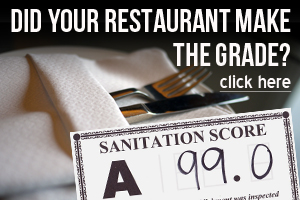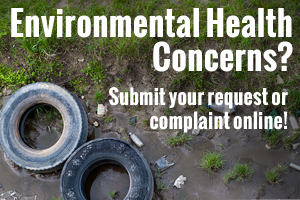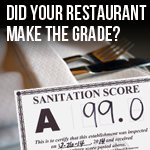 The
Forsyth County Division of Environmental Health Section supports many programs for
the protection of children’s health. These programs include the inspection of daycares,
school buildings, school cafeterias and childhood lead investigations.
The
Forsyth County Division of Environmental Health Section supports many programs for
the protection of children’s health. These programs include the inspection of daycares,
school buildings, school cafeterias and childhood lead investigations.
Child Care Centers
Child care centers are inspected twice per year. These inspections ensure that proper procedures are followed for everything ranging from diaper changing to food service as well as general sanitation. Child care centers are graded on a demerit system in which a classification of superior, approved, provisional or disapproved.
- To receive a superior, a demerit score of less than 15 must be achieved with no 6 demerit items deducted.
- An approved is received if the demerit score is more than 15 but less than 30.
- A provisional classification is assigned if any 6 demerit item is violated or if the total demerit score is more than 30 but not more than 45.
- If the demerit score is 46 or more or, if the conditions which resulted in a provisional classification have not been corrected in the time period specified by the Environmental Health Specialist, then the establishment will be placed in a disapproved status.
If the provisional status exceeds 7 days, or the child care center is disapproved, the Division of child Development shall be notified immediately for further action. At the end of the inspection, a classification card is posted in a conspicuous place designated by the Environmental Health Specialist.
View the Rules Governing the Sanitation of Child Care Centers
School Buildings and Cafeterias
School buildings are graded on an annual basis. The purpose of these inspections is to ensure that proper sanitation is maintained in all Winston-Salem/Forsyth schools as well as in all private schools in Forsyth County. The inspection process covers everything from proper maintenance of the school facilities to correctly controlling chemicals used within the school building. Schools are graded on a 100 point scale and given number grade; however, no letter grade is posted for the school building.
School cafeterias within the school systems are graded on a quarterly basis and are regulated in accordance with the Rules Governing the Sanitation of Foodservice Establishments. The grading scale is on a 100 point scale and a letter grade is assigned and posted. A score of 90 to 100 is awarded an A, a score of 80 to 89.5 is awarded a B and a score of 79 to 79.5 is awarded a C. A score below 70 results in an immediate suspension of the operating permit. The purpose of the cafeteria inspection is to ensure the proper storage, preparation and serving of food as well as the proper cleaning and sanitation of all facilities and equipment.
View the Rules Governing the Sanitation of Public, Private & Religious Schools
Lead
The Forsyth County Childhood Lead Poisoning Prevention Program (CLPPP) was formed by a grant from the Centers for Disease Control (CDC) in an effort to eliminate childhood lead poisoning in Forsyth County. Although there is an increase in lead screenings, lead poisoning is still a problem that affects children for their entire lives. The CLPPP currently provides early intervention, surveillance, abatement enforcement, monitoring inspections and risk assessments, and case management for the county to assist the CDC in its elimination goal.
The CLPPP has also formed the Forsyth County Lead Coalition made up of community leaders including parents, medical providers, and representatives of the construction and housing industries, and many others who learn about childhood lead poisoning issues in Forsyth County. The Coalition meets quarterly to discuss issues in lead poisoning and listen to guest speakers from organizations such as HUD and EPA. We need more community involvement and would love for you to join.











